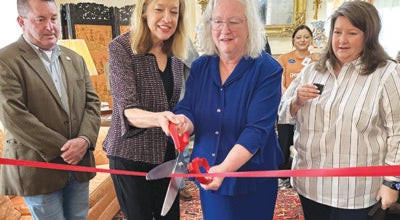Legal ads show proof in black and white
Published 10:55 am Tuesday, October 6, 2015
Stop for a moment and turn to Page B5 to marvel at the language — often full of sections, townships, ranges, and other obscure boundary markings mixed with a peppering of whereas — under the heading “Legals.” Then come right back.
In those often difficult to decipher words and is perhaps one of the most important functions of newspapers.
Want to know where government is spending your money? Just look at the legal ads. Looking for foreclosed property for sale? There it is.
“Publication by print, at least in the legal world is most important because it’s there in black and white,” said Chancery Clerk Donna Hardy, from whose office a wide variety of legal notices are published. That is where the true goings-on and transparency of government happens each and every day, whether the ads are for a timber sale like the one published Monday or a call for bids for janitorial supplies for the county courthouse.
“Newspapers have for centuries been the trusted third-party watchdog on behalf of citizens,” said Layne Bruce, the executive director of the Mississippi Press Association. One of the most crucial examples of this is in the printing in our newspapers and posting on our websites of public notice advertising.”
Legal advertisements are highly scrutinized by attorneys and government clerk’s before publication. How often and for how long they are published is established by a strict set of legal standards.
“When you don’t publicize it correctly, you’ve opened the door to be challenged. That statement applies to whatever it is to be advertised,” Hardy said.
There have been many attempts since the invention of the Internet to remove legal notice and publish them on government owned websites. Despite the efforts, newspapers remain the staple for the public.
“It’s the citizen’s bulk of information,” Deputy Chancery Clerk Denise Baily said.
In Mississippi, the cost of publishing notices in print and online through an independent press is miniscule compared to the overall budget of most government entities, Bruce said.
“Government should not be in the business of being its own watchdog. Mississippi newspapers and their affiliated digital products have been and should remain the independent third party provider of these notices,” he said.





